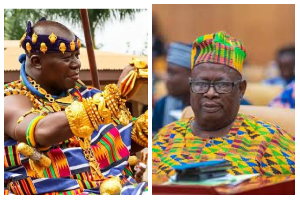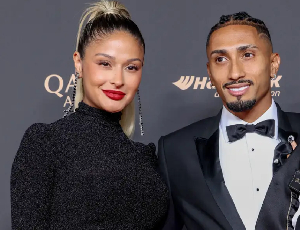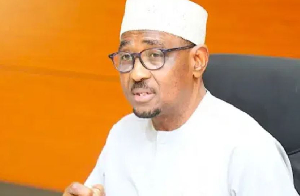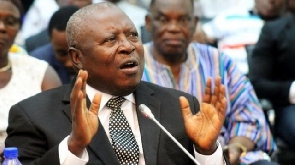The Crisis in Kenya and it?s relevance for Ghana
Family, allow me to crave your indulgence for yet another discourse on matters brewing in the motherland, that should be of utmost importance to every Ghanaian living anywhere and everywhere, especially taking into consideration the political carnage that is happening right now in Kenya.Of all the African countries, I can say Kenya comes as the closest to Ghana in terms of national temperament, hospitability, and outlook, in spite of the fact that Kenya is way out in the East and we are in the west. Perhaps it is no accident since our founding fathers; Kwame Nkrumah and Jomo Kenyatta were practically brothers in arms in the struggle for independence and luminary giants in the Pan African movement, the Commonwealth and the OAU, in the early 1960s. A comparative study of the political economy of both Ghana and Kenya is like a study of identical twins, separated at birth. The para statal establishments that were undertaken to kick start the economies of these two countries were carbon copy of each other, often bearing the same names and serving the same mission or purpose. Ghana had GIHOC group of industries, Kenya went ditto with the KIHOC group of companies. Ghana establishes GNTC and Ghana Airways and guess what, Kenya answers with KNTC and Kenya Airways. Ghana went a one party state, so did Kenya. The philosophies of the founding fathers were the same; that since party politics had not been so much ingrained deeply into our national ethos, we risked degenerating into our various bloody, acrimonious, and antagonistic tribal groupings that preceded white colonialism. In their wisdom there could be no indulgence in the luxury of party politics that tend to pit one ethnic group against the other. The nation as an entity must be built and grounded into our sub-conscience minds first, to replace our ethnic demarcations and identities, before we could allow for multi-party democracy. Hence the battle cry was: One Nation, One people and One Destiny. Besides just throwing a boundary around some African folks, some of which were drawn on the back of paper napkins in the halls of European capitals, very little had been done to inculcate a sense of belonging to a new nation in the Africans even up to the time of independence, much less the art of party politicking. Much of our politics have largely dwelled on ones ethnicity and pedigree and much less on the issues and what an individual could bring to bear by way of national development. But then, isn?t it an insult in itself to suggest the African is incapable of making discernible and comparable objective analysis in political deliberations, based purely on the facts and issues, in order to choose the best candidate who represents his best interests? I posit that it is our college educated folks who have failed us miserably. Our elders in the villages are in fact the best people to put truth where it belongs, no matter what. The problem is that our politics have been conducted in a manner and languages alien to them. We go to our common folks in the rural areas to arouse in them their tribal passions, other than to engage and appeal to them on the issues that would propel the country forward. For instance, in Ghana, we are going to have elections in December 2008, and still we are yet to hear any politician worthy of our attention cogently articulate any visions for the country besides promising more of the same, amidst fan fares, without availing themselves for unvarnished scrutiny. We are more interested in titles and accolades rather than performance and duty. Corruption has crept into our body politic with people throwing monies at us as if we are hungry dogs looking for crumbs from our masters table.
Looking back and in view of the shocking tribal conflicts and warfare under the guise of some shamble party politics in Kenya, Rwanda, Nigeria, La Cote d?Ivoire, Sudan, Somalia, Liberia, Sierra Leone, etc, to mention just but a few, I am tempted to say, just may be, Kwame Nkrumah and Jomo Kenyatta were right. Our politics, 50years on, do not galvanize and rally our common folks around the issues that would help us to unite and develop; to push our leaders to debate and challenge each other on what they can do to move the country forward. The hard knuckle questions do not get asked like how they would pay for the promises they make and the candidates hardly engage each other on common platforms and in front of live audiences and cameras like the Americans do. Rather what we get is prospective presidential candidates touring chiefly palaces and funerals to cultivate paternalistic cronyism and nepotism, and making empty promises that anybody hardly gets to challenge them for and on the record. It seems to me we do not have a party system, but rather a factional system under the guise of a party system. The parties are primarily personal vehicles composed of a leader, his cronies and often an ethnic following. It makes you wonder whether it was by accident or design that the first political party of the land chose the word Convention as their name. Seriously you can hardly distinguish a Ghanaian political party from a Pentecostal church; over bowed by a father and founder and incessant Holy Ghost conventions, crusades and celebrations. If we the people would take these confidence tricksters, passing for politicians, to tasks, just may be we shall cut back on our Fridays all night wailing prayers and weeks of fasting that seeks to ask God to intercede on our behalves whilst we put our brains on pause.
Given what has happened in Kenya, and hearing the pronouncements of our political leaders just may be you and I should wake up and call these trouble makers passing for so-called leaders to order before it is too late. A quick run down of what went wrong in Kenya, would suffice to buttress my call to rise up to put our house in order before the D-Day, come December 2008. Until the present political conflagration Kenya has been held up as one of the most stable African countries, in a very unstable and dangerous part of Africa, surrounded by Somalia, Sudan, Uganda, Rwanda, Burundi, Tanzania, and Ethiopia. In fact Kenya, unlike Ghana, has never had a coup d?etat, and had often been held as the jewel and economic giant of East Africa. But that is where the differences end. In both cases the political class has never lived up to their independence expectations. Graft and corruption is rampant and politicians had often hidden behind their tribal identities and affiliations to hoodwink the common folks to rally round them, whilst they continue to rob them of the much needed funds that should have gone in to modernize and develop their economies. It is very shocking that we haven?t had much greater blood fest in our streets given the extreme poverty that has been wrought on us by our own kith and kin.
Beginning in the 1990s, a new wind of change began to blow in Africa after decades of one party or military dictatorship. What was happening was that, western donors, beginning from the early 1990s began to be weary and tired of the decadence in Africa, in spite of the billions of dollars in aid they had given to us since independence. The western donors concluded that there was such correlation between one-party or military dictatorship and underdevelopment, so they began to breathe on the African leaders to initiate moves to bring multiparty democracies in their countries, lest they cut off aid to them. So both in Ghana and Kenya, beginning in 1992, and in many other African countries, there was this big push, called multi-party systems, brought in to whip up competition amongst the political and ruling class. In some countries, like Ghana, Gambia and Nigeria, the military junta, just donned civilian clothes. In Kenya, people within the same one party split to form other parties. But make no mistake, the value was and is the same, the problem of Africa has been and always been one of leadership. Our leadership is incurably corrupt and inept, cent pour cent. People go into politics to become multi millionaires, sell state enterprises to themselves and cronies at below floor prices. So what we began to see is the rise of the common folks, often labelled as the mob, against the political class. They see the rampant crime and corruption going on, but lacking any education for themselves, they cannot do anything but bottle up deep seethed anger, frustration and loath of politicians that is waiting for the right spark to take to the streets. In Ghana you don?t need to see beyond the slum dwellers like those of Sodom and Gomorrah, to realize a ticking time bomb that would explode like volcanic lava under the right conditions. These group of people in many African societies realize their birthright have been taken from them. For instance in the oil delta states of Nigeria, we are witnessing low level class and tribal warfare, where the common folks have taken to attacking oil rigs and foreign oil companies in attempt to get back what is rightly theirs. There is no mistake that the low level war is aimed at exacting something back to compensate for their stolen wealth and polluted lands. There is a generational shift of young people who thirst for democratic change, freedom, jobs and developments, in that they have decidedly broken ranks with the ruling classes and are bidding their time to take their wrath on them. What better time to strike than when elections or mandates are stolen? So we saw the youth in many other countries like Togo and the Ivory Coast striking very hard as soon as elections were perceived to have been stolen. In Ghana, you can guarantee that the apostles of doom can find followers in people like Dr. Asemfofro and the like.
Politicians of all brands have exploited this lower income class of people to achieve their diabolical aims. As we speak that is what is going on right now. In Kenya just as it is happening right now in Ghana, the elections were preceded by months of tele-guided coded messages aimed to prepare the manipulable youth for maximum effect ? carnage and bloody confrontations. The NDC leadership, for instance, just like Kenya?s Orange Democratic Movement, has already embarked on the journey of tele-guiding the mobrowa class with the diabolical nonsense that the 2004 elections were rigged and stolen by the NPP and labelling the NPP leadership as thieves, whilst ignoring their own. One is tempted to wonder aloud whether Professor Atta Mills, who prides himself to be Asomdwehene, is fast becoming Nkwaseafohene, to imply nothing but short of victory for the NDC would be acceptable to him in December 2008. If the 2004 election was stolen, what the heck stopped him from going to court to seek redress? Or is he that much of a coward, whose tail is clamped firmly down in the ground like Otwe Agyanka, by his political paymaster, he would echo anything he says, just to please him? The danger is that Atta Mills is so hungry for power for himself and political paymasters now; he seems to have thrown to the wind all caution by planting these misguided statements in the minds of the most gullible to prepare them for carnage. Such careless and useless talks would be playing into the hands of destroyers who wouldn?t care to hide behind demonstrators to loot and destabilize the country and set us back many years again. Have you noticed that all political violence and demonstrations are accompanied by wide spread looting, butchery and destructions? That is the lower income class way of telling you that it is their turn to steal. If the political class would steal elections, what stops them from copying in like manner? Is it any wonder that following the wake of Atta Mills? loose talk, an NPP blood hound, in the person of MP Kennedy Agyapong upped the ante with his own threatening warning to kill ex-President JJ Rawlings and his entire family in case any disturbances ensue after the elections? What good would Rawlings? blood be for Ghana, if I may ask? Are any of these politicians so important, any human being, should lose his life over them? This is where civil societies like the press, student organizations and churches should come in to wrench out accountability and responsibility from our politicians.
No country or society is immune from political violence and we have to put these merchants of doom, death and carnage on notice that we shall not allow them to practice their trade on us anymore. Whilst the grass burns, experience has taught us that the so-called political class would be toasting each other with expensive drinks and dishes at peace conferences, trying to damp the fire they themselves had stoked. Everywhere you look; all the signs are on the wall, as the youth wouldn?t sit down anymore to be taken for a ride by deep pocket politico-business class. So we saw it in Anloga, Bawku, Ga, and Yendi etc. You may say those were chieftaincy affairs. I would say look again. The youth are fed up and sick and tired of rich people and politicians who do not belong from taking them for rides and only strict adherence to the rules would spare Ghana of major conflagration. That would mean open and free elections, with all stake holders making extremely sure that all votes are counted openly and the results reflect what the people have expressed. In Kenya, what we saw was a first in Africa. You and I know that Africans do not vote skirt -and-blouse, like voting for an MP who belongs to ABC party, and going for a president who belongs to XYZ party. We haven?t reached that level just yet; we tend to vote for an MP and a president who belong to the same party. But what did we see in Kenya? The opposition won majority of the parliamentary seats whereas the ruling party?s presidential candidate won the presidency. There were many instances where the number of votes cast exceeded the population of the region to the tune of 150%, and people with certain names such as those beginning with the letter O found out that their names were missing entirely from the voters register. It is no secret that the Luo people from western Kenya, near the Lake Victoria area, an opposition stronghold, have names beginning with O, like Odinga and Obama. Strangest of things, if you were a person of Luo extraction, and you are living in a Kikuyu area in central Kenya, you would go to the polling area and find out you and people like you have your names de-listed from the voters register. It is like saying if you had an Ewe name, you couldn?t find your name in voters register in Akan areas even though that is where you live.
It is not like we haven?t seen something of that nature on a minor scale in Ghana before, we all remember General Erskine and the Ketu district votes in the 1996 elections, but this time I don?t think we should sit by to let politicians take us to the cleaners. If we would escape the Kenya debacle, it behoves on you and I to pull the rug from under the feet of any politician who would play with our security and freedom. No man is greater than the country, and trust me they all come in to stash their mouths. Foolish us, if we allow them. Let us not forget that what happens in Ghana would have a huge impact not only on our economy but also on the Ivory Coast, Togo, Burkina Faso and even Niger and Mali. We have come a long way from the doldrums of the 1980s and 1990s to go back now. The youth are agitated and sweltering under the harsh economic realities of today, let us level with them, and not gamble their future on the alter of self-centered party politics. Many of the youth today who are below the ages of 35 and down did not see Kwame Nkrumah, JB Danquah and Busia. They have lived the greater part of their lives under military dictatorship; let?s give them something to grow on, if we have bungled ours. If we don?t we shall have ourselves to blame as the political history of Ghana, has proven, time and time again, that if things break down, it is the political class, be they military or civilians, are the ones that get mowed down. Let?s invest in our youth, so that they would stop migrating to other lands where they become like indentured slaves. If you are reading this, Ghana politicians, I say, just shove it, enough of the useless loose talks. Some of you have been around for so long we do not remember when you were not in politics, and yet you have nothing to show for your stewardship. Just shove it and give us real debates on the issues. No one is interested in your hyperboles.















